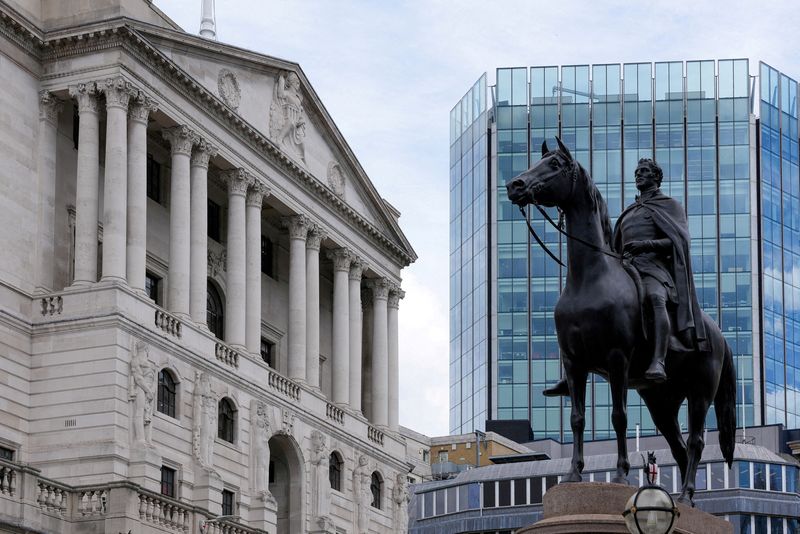LONDON (Reuters) -Bank of England interest rate-setter Jonathan Haskel said signs of a slowdown in Britain's economy did not imply a need for less tightening of monetary policy and the central bank should "stand firm" against the risk of persistent inflation pressure.
A very tight labour market and Britain's poor record on investment meant the economy was at risk of persistent inflation pressure, Haskel said in the text of a speech he was due to give at the Bank of Israel which was published online.
"The concern for me is the risk that if price rises become embedded, monetary policy would have to be tighter for longer, prolonging a UK recession," he said.
"I wish to avoid such an outcome. Therefore, right now, I believe it important for monetary policy to stand firm against the risk of persistent inflationary pressure."
Haskel was one of seven members of the BoE's Monetary Policy Committee who voted last week for a 75 basis-point increase in Bank Rate, the biggest increase in borrowing costs by the central bank since 1989.

Earlier on Friday, fellow MPC member Silvana Tenreyro, who cast a lone vote for a smaller 25 basis-point increase in rates last week, said the BoE should not raise its key interest rate above its current 3% and may need to cut it in 2024.
Separately, BoE Governor Andrew Bailey said in a newspaper interview that efforts to bring inflation under control were likely to take between 18 months and two years, adding that inflation was "way above where we (want) it to be".